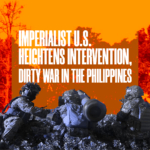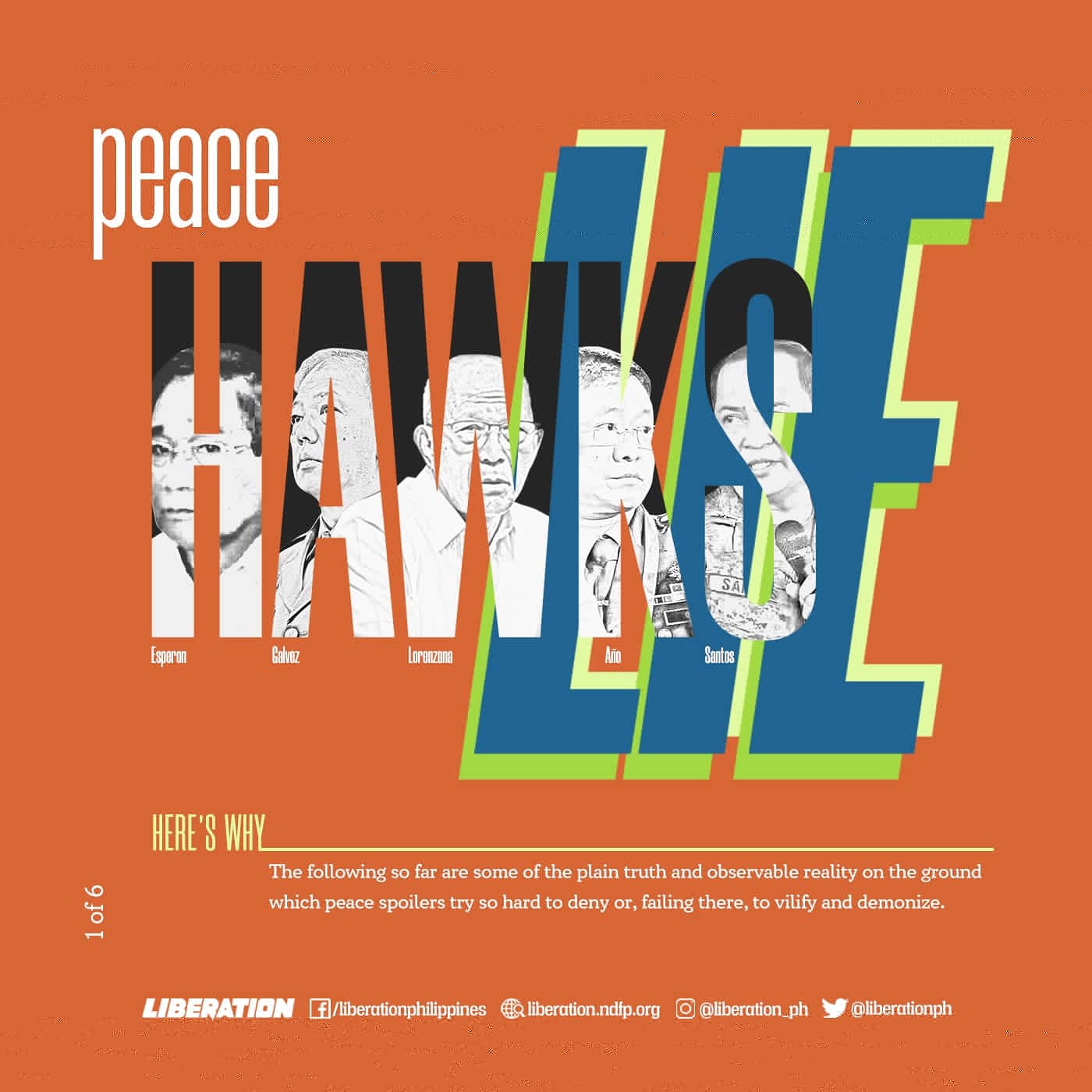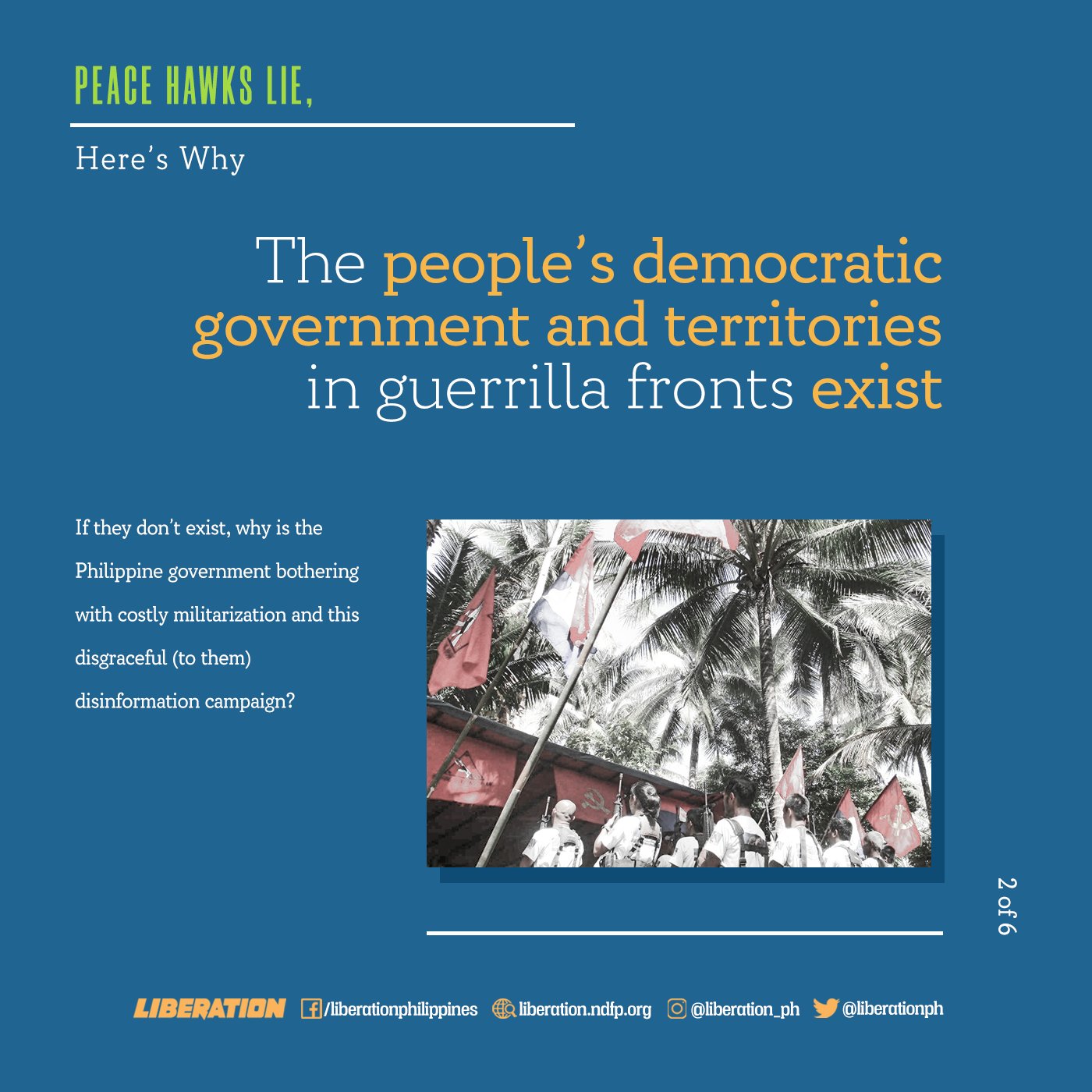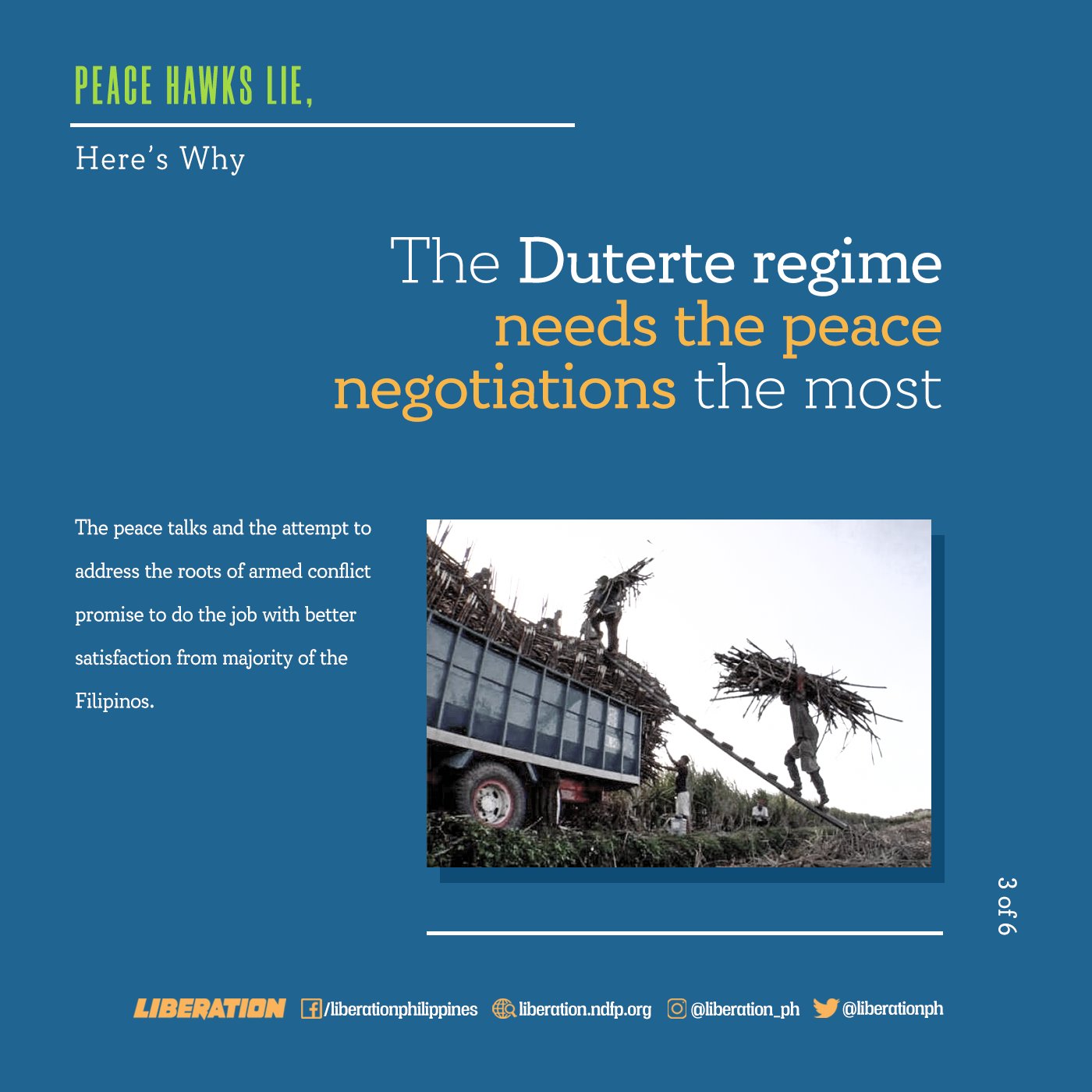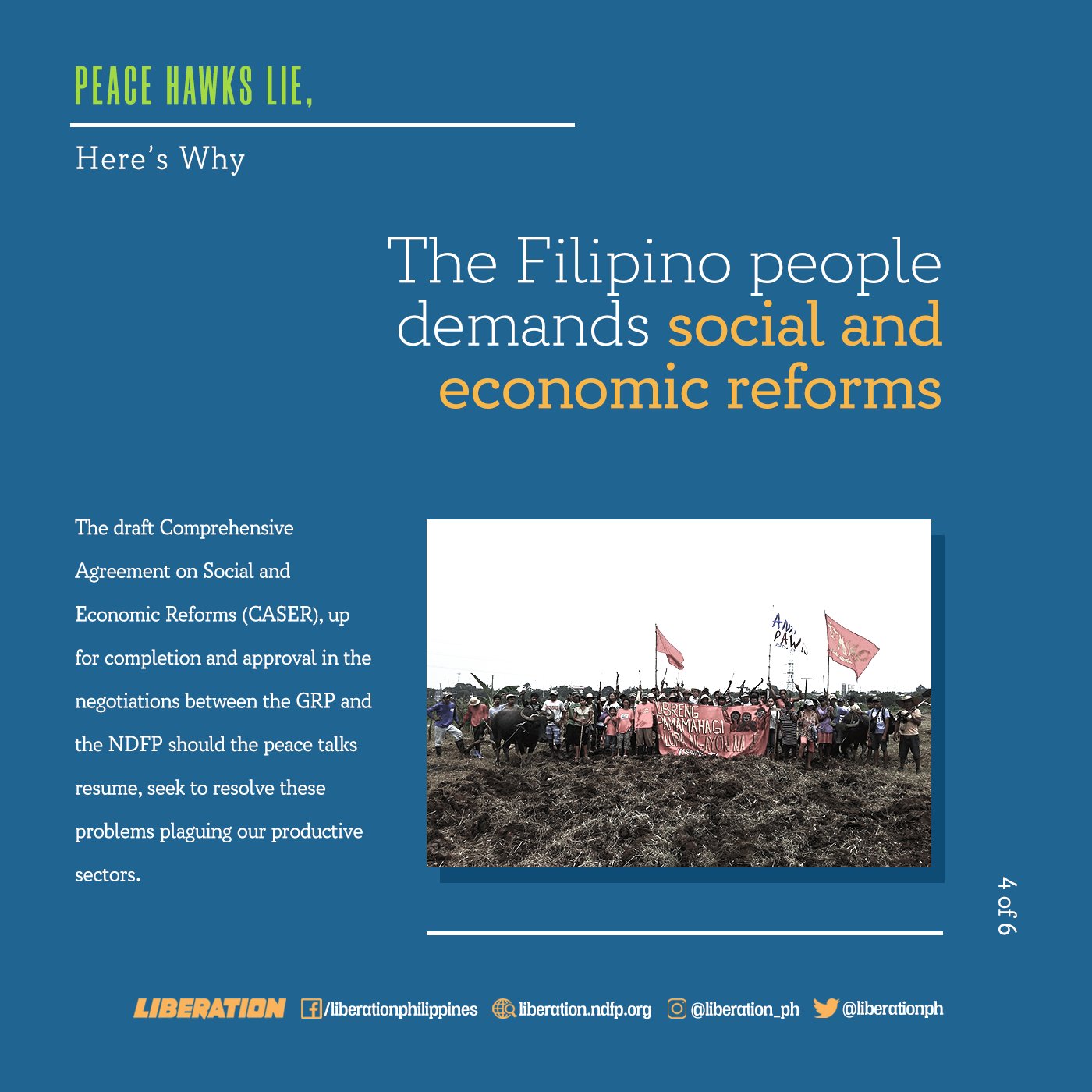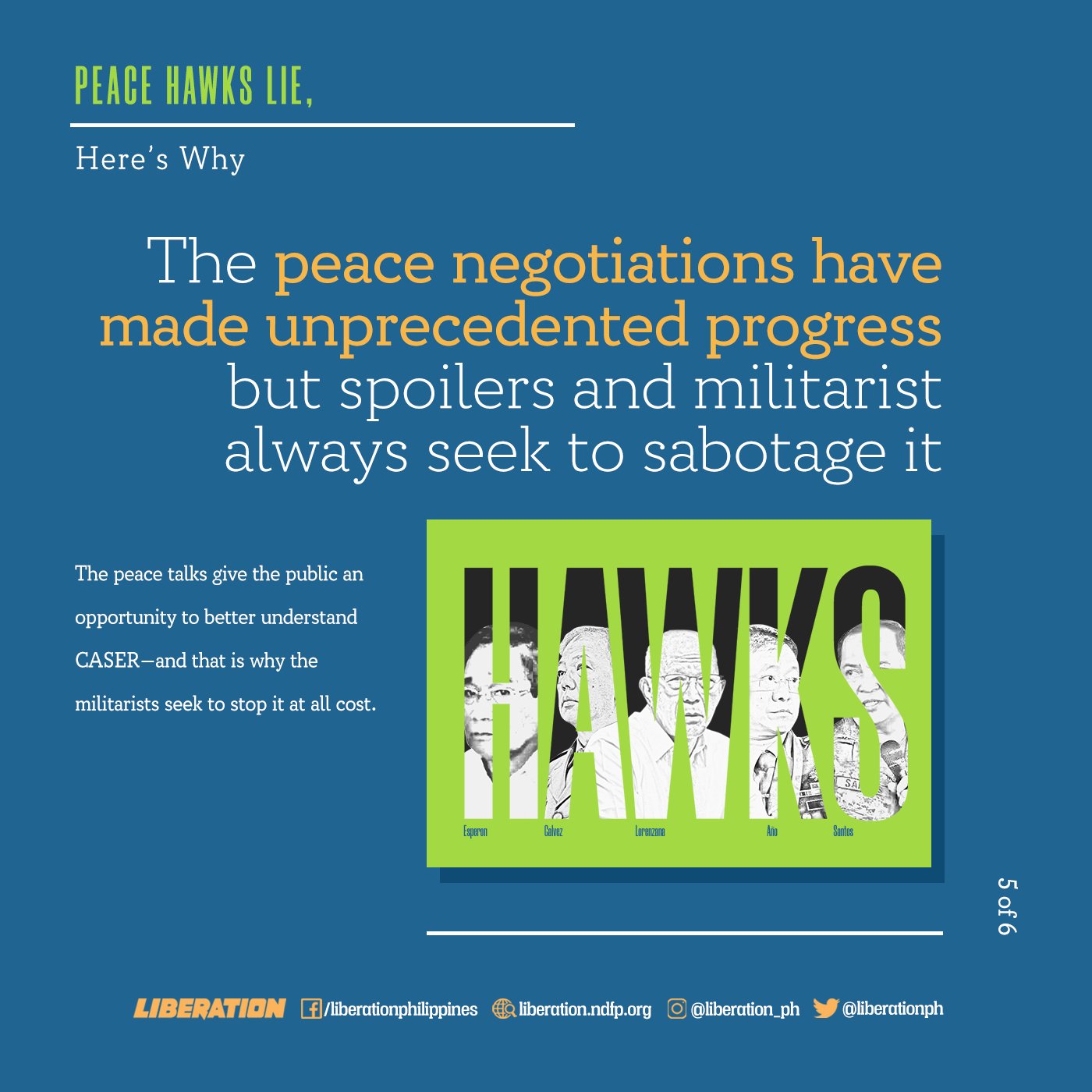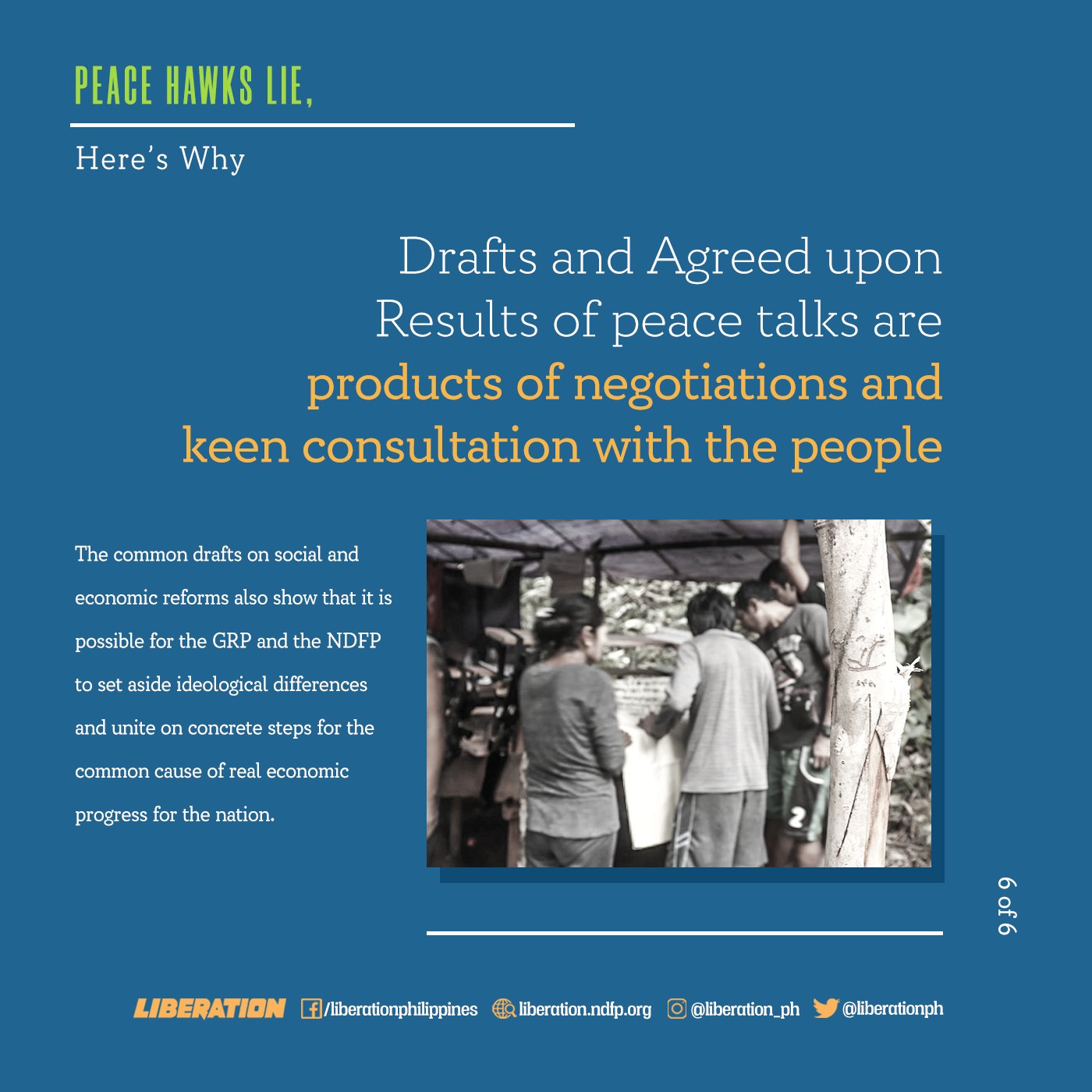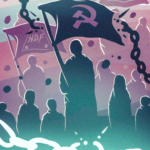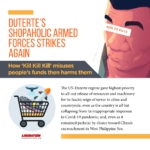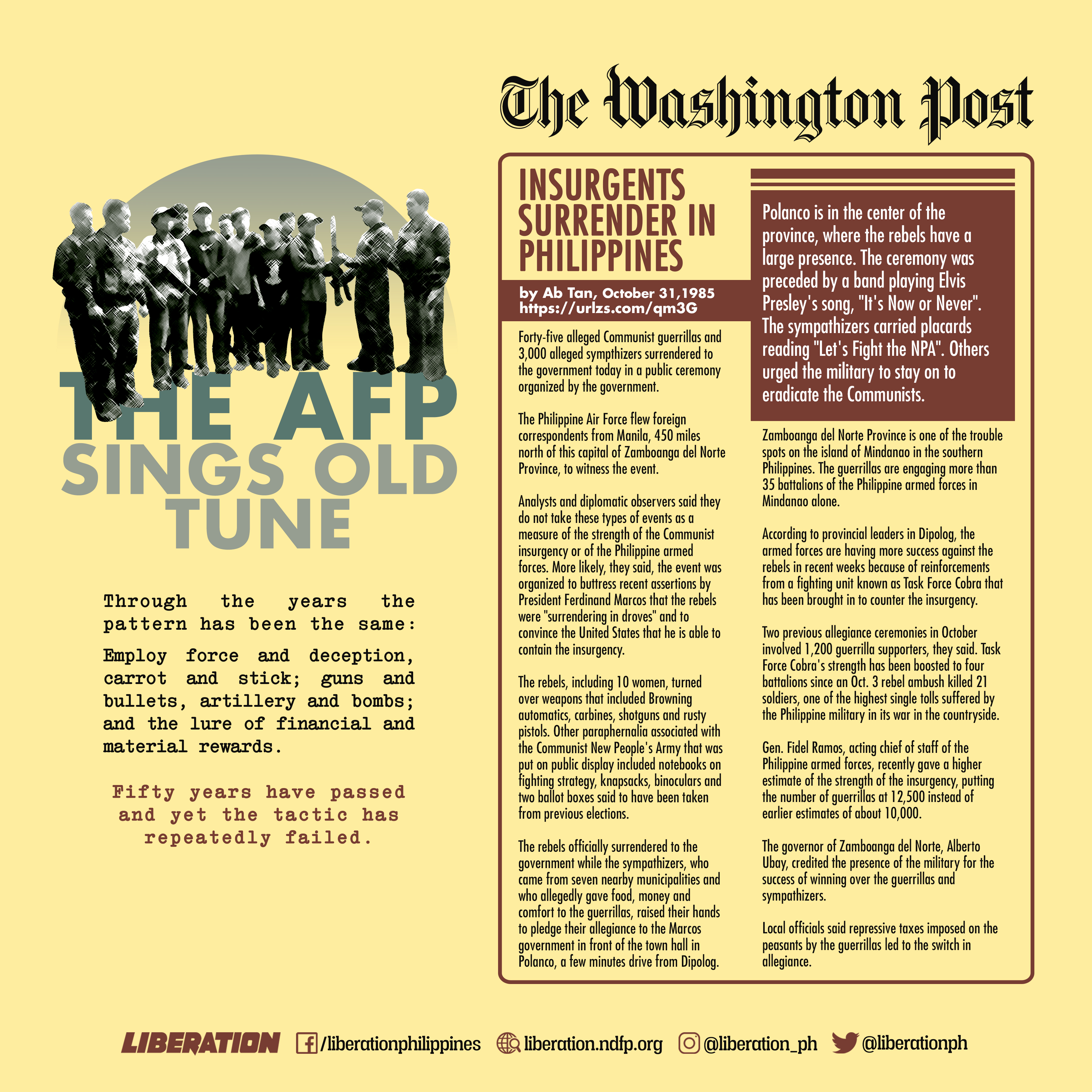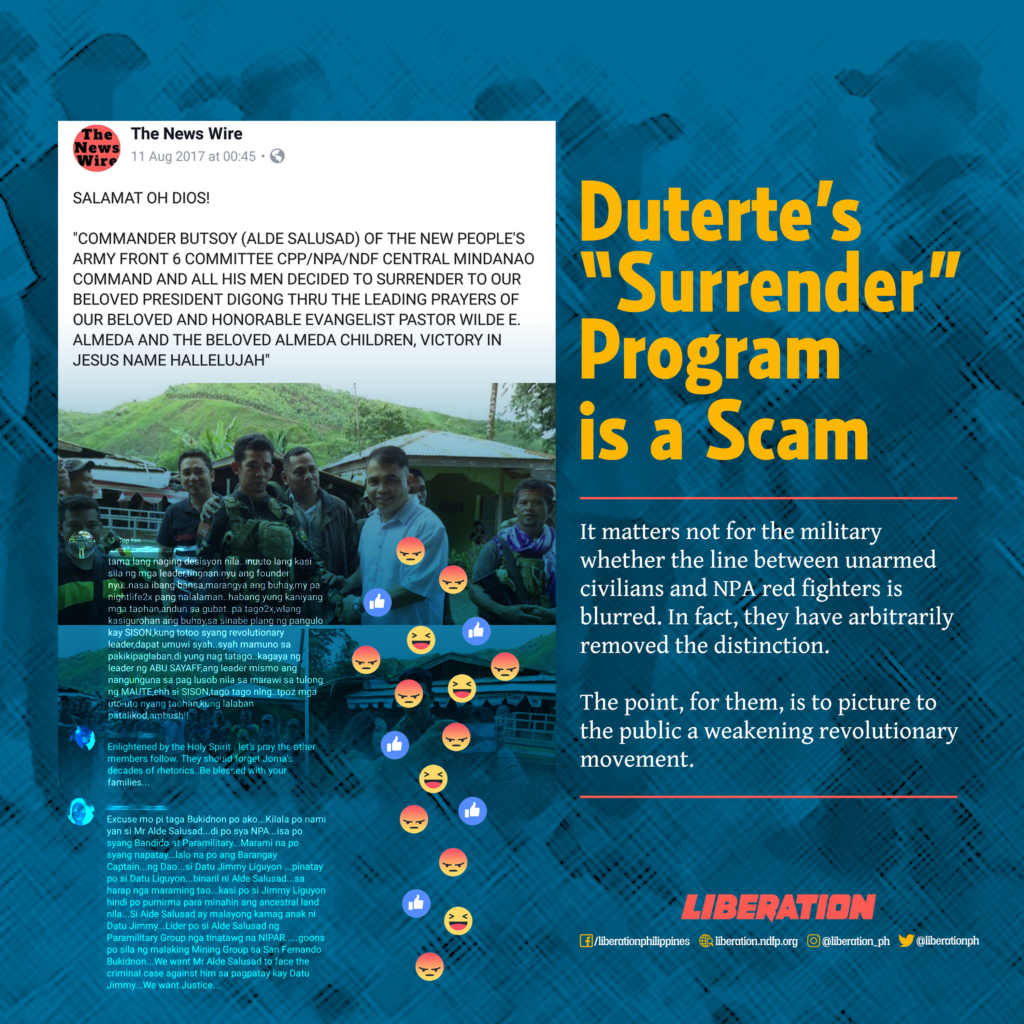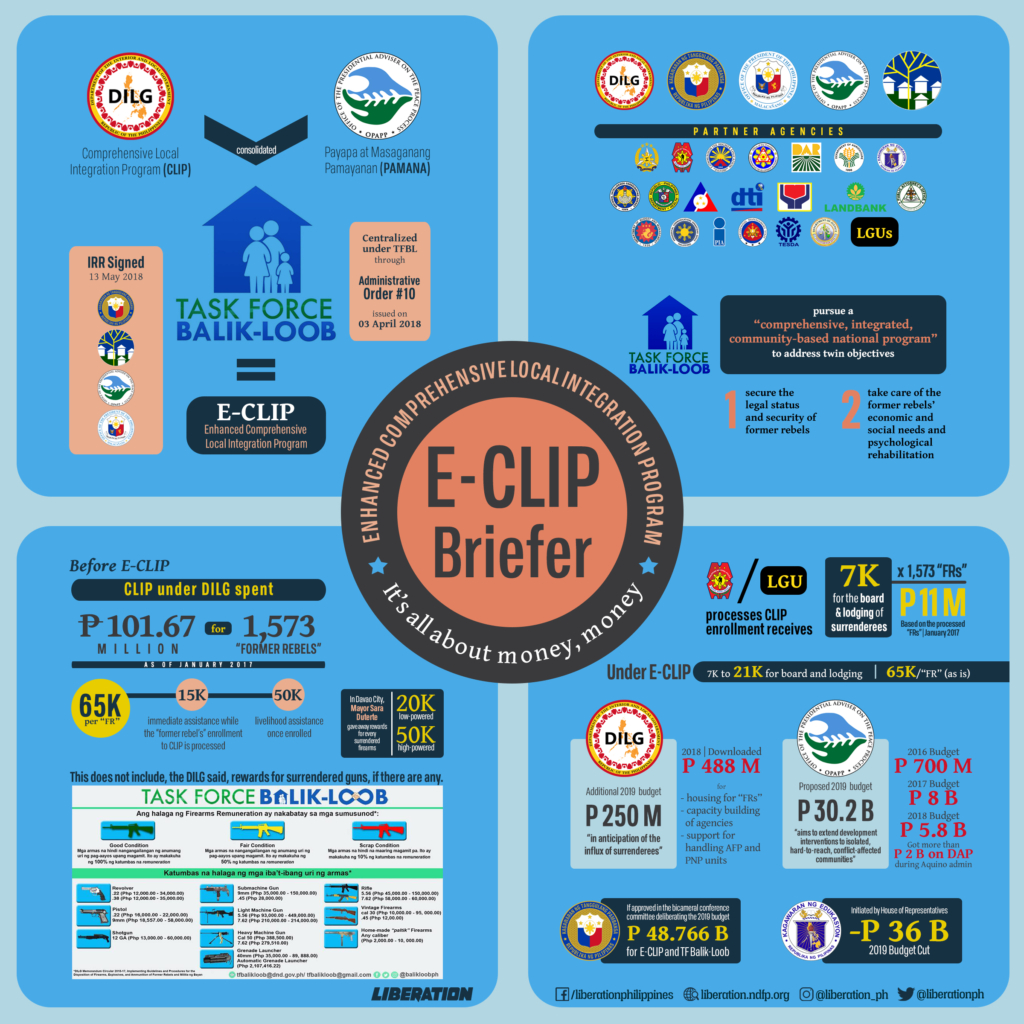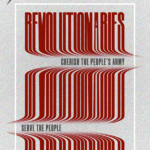In between Duterte’s late night show, who’s on the stage?

A series of tragicomedy—and deadly—policies and actions by the Duterte regime have plagued the country and the Filipino people alongside the Corona virus pandemic. On the surface, the regime’s response to the pandemic looked absurd and obviously plucked out from an alternate reality. People call it mema—me-magawa or me-masabi (a popular slang term meaning to look like one is doing or saying something meaningful or relevant). But the mema is actually a consequence of the government’s lack of direction and plan on how to deal with the pandemic and its impact on the country’s already neglected health system and a failing economy. Apparently, the Philippines has become Southeast Asia’s Covid-19 hotspot while the economy has now plunged into recession, the worst in eight decades. Both demonstrate how the regime has gone to rack and ruin. More than six months into the lockdown, the people are more convinced that the criminally negligent regime is deadlier than the COVID-19.
At the onset, health measures such as mass testing, contact tracing, isolation and treatment, and the overall strengthening of the healthcare system (weighed down by the yearly budget cuts even before the pandemic) were sidelined in the battle against COVID-19. With former generals Delfin Lorenzana, Eduardo Año, and Carlito Galvez calling the shots, military and police deployment, lockdown and quarantine, and orders to arrest, jail, and kill the “quarantine violators” were top priority. The measures were largely punitive rather than facilitative, especially in delivering the much-needed services and assistance to the homeless and jobless.
The fascist measures taken by the regime reflect the military’s dominance in the Inter-Agency Task Force against Covid-19 (IATF Covid-19); and the absence of health experts and scientists. Since Day 1 the regime has stubbornly stuck to a failed and irrelevant militarist approach despite the continuous rise in the number of COVID-19 cases, slow recovery rate, and the many deaths among health practitioners and those who were infected by the virus. The people, sick with the mishandling of the pandemic embraced and popularized the slogan/hashtag #SolusyongMedikalHindiMilitar. Recently, the slogan has ceased to be just a social media hashtag as calls for the resignation of health secretary Duque and the revamp of the military-dominated task force mounted.
The Inter-Agency Task Force against COVID-19: A militarized response to the pandemic
The actual operations of the IATF Covid-19 follows the command operation of a military organization with the big three generals—Delfin Lorenzana, Eduardo Año and Carlito Galvez—at the top. National defense chief Lorenzana heads the IATF Covid-19 command center, which oversees the implementation of the National Action Plan (NAP) of the “Bayanihan We Heal as One” Law; while DILG secretary Año sits as vice-chairperson. Third in command is presidential peace adviser Galvez Jr, the “chief implementer” of the NAP. He heads the National Incident Command (NIC) for its daily operations. Later, when Covid-19 cases rose to dangerous level in Cebu City, Duterte chose former AFP chief of staff and environment secretary Roy Cimatu as deputy chief implementer for the Visayas. Cimatu immediately deployed soldiers and tanks to Cebu, a move that was heavily ridiculed by the people.
The IATF dished out policies, oftentimes problematic and in conflict with those in the local government units and the health sector and other frontline workers, and to the detriment of the working class.
How the IATF Covid-19 works with the existing Task Force for Emerging Infectious Disease (a body created during the term of Pres. Aquino III), the several Czars appointed for quick fix, and the several other task groups is a tangled web. It has neither a beginning nor an end. What is obvious from the public’s view is that the retired generals and the Philippine National Police (PNP) are obviously running the show. DOH’s Duque who was visible in the first few weeks of the pandemic slowly faded from the scene only to reappear later when public demanded for a clear health solution to the pandemic rather than a militarist one. This however did not pacify the people as Duque is largely perceived as corrupt and equally inefficient in handling the pandemic.
Expectedly, the embattled regime shielded its militarist approach and criminal negligence by red-tagging its critics and propagating the pasaway (stubborn, disobedient) narrative against the people, especially the poor. Propped up by the Presidential Communications Operations Office (PCOO), thousands of trolls, and aided by a number of reporters in the corporate media, the regime blamed anyone and everyone in an effort to get away from its accountability. Only a month after the lockdown, the PNP recorded in April 2020 some 93,000 people accosted for “quarantine violations” while about 24,000 were arrested and slapped with charges. They are mostly workers and urban poor dwellers who were forced to earn a living in the absence, or lack, of government assistance.
In an interview, Prof. Jose Maria Sison aptly described the IATF Covid-19 a “coordinate of the NTF-ELCAC” (National Task Force to End Local Communist Armed Conflict) as both task forces are controlled by the same ex-military generals. The IATF Covid-19, Prof. Sison said is, “practically (NTF-ELCAC’s) replication.”
The National Task Force to End Local Communist Armed Conflict (NTF-ELCAC): A militarized response to social injustice and poverty
Joining Lorenzana, Año, and Galvez at the helm of the National Task Force to End Local Communist Armed Conflict (NTF-ELCAC) is national security adviser Hermones Esperon, also a retired general. Esperon is the president’s vice-chair in this task force of 20 cabinet members and two unnamed sectoral representatives.
Created through Executive Order no. 70 in 2018, the NTF-ELCAC embodies Duterte’s rehashed version of the “whole-of-nation” approach started by the Noynoy Aquino regime. It aims to mobilize the whole civilian bureaucracy to end the more than 50 year-old revolutionary movement led by the Communist Party of the Philippines, the New People’s Army, and the National Democratic Front of the Philippines (CPP-NPA-NDFP). Essentially, the NTF-ELCAC has militarised the government and establish a fascist state. Lorenzana, Año, Galvez, and Esperon are among the more than 80 ex-military officers and men who dominate the civilian bureaucracy of the Duterte regime. According to Prof. Sison, the NTF-ELCAC fully created Duterte’s military junta.
The NTF-ELCAC, with the regime’s disinformation/misinformation arm and fake news mill, the PCOO and regional headquarters of the AFP and PNP have been notorious in using public funds to spread lies in the country and in the international community. These are specifically directed against the revolutionary movement, the open and legal people’s organizations, leaders of people’s organizations, human rights institutions, and the regime’s critics. Although oftentimes ridiculous and beyond belief, red tagging has already become a death sentence to many activists. During the lockdown, at least five known leaders—including NDFP Peace consultant Randy Echanis and human rights activist Zara Alvares—and hundreds of activists who were red tagged, vilified as terrorists were murdered.
The NTF is also engaged in a big-time racket through fake surrender of “rebels”—most often civilians who were lured or coerced and later presented as rebel surrenderers. Each “surrenderer” is supposedly given at least Php 65,000 cash assistance. In 2018, at least Php 520 million up to Php 715 million were supposedly spent by the government for this program, mostly ending up in the pockets of military officers and their minions since there has never been many real surrenderees.
Dubbed as the generals’ pork, the 2021 NTF-ELCAC proposed budget of Php 16.44 billion through National Security Adviser Hermogenes Esperon Jr is almost 3000 percent bigger from the 2020 budget. Año justified the budget saying the fund will be used for the construction of farm-to-market roads, barangay health centers, school buildings, obviously a duplication of the functions and budget of existing agencies. The proposed Php 16.44 billion budget excludes the budget in support of the anti-communist campaign spread in various government agencies e.g., the AFP and PNP. The NTF-ELCAC’s budget is three times higher than the budget allocation to combat Covid-19 like purchases of personal protective equipment (PPE) and other COVID-19 interventions.
Through the IATF-Covid-19, the NTF-ELCAC “has gained more power and resources as a result of the Covid-19 crisis.” Both task forces are used by Duterte “to undertake a de facto martial law regime in the name of fighting the corona virus and to prepare the way for the formal declaration of martial law and the full imposition of a Marcos-type fascist dictatorship.”
While the country was in lockdown, helicopters were used to drop not relief goods but “counterinsurgency” flyers on the remote villages of Sagada and Besao in Mountain Province and in Surigao in Mindanao. Ang Bayan, the official publication of the CPP reported “extensive combat operations” and 14 indiscriminate bombing, strafing, and artillery shelling incidents in Lumad villages in the borders of Agusan del Sur, Bukidnon, and Davao del Norte from March 24 to April 1. Further, Ang Bayan recorded military attacks in at least 625 barangays of 247 towns in 54 provinces while the country was battling the impact of the Covid-19 pandemic. The highest number of cases of human rights violations was recorded in 149 barangays in Southern Tagalog, 106 in Eastern Visayas, and 101 in Bicol. Meanwhile, 26 incidents of aerial surveillance were also recorded.
The regime’s intense ‘counterinsurgency’ operations happened at the time when CPP-NPA-NDFP’s unilateral ceasefire was in effect from March 26 to April 15. The CPP ceasefire was extended to April 30 when Pres. Duterte lengthened the lockdown; but, the military operations continued. The CPP declaration of a ceasefire was a response to the call of United Nations Secretary General Antonio Guterres for a global ceasefire during the pandemic.
Simultaneously, in urban and rural centers, humanitarian missions and community kitchens were red-tagged, blocked, and prevented from delivering relief goods to many communities neglected by the government. Worse, those who participated, including a former house representative of the Anakpawis partylist, were arrested, jailed, and charged with made-up charges.
The whole bureaucracy has enabled the NTF-ELCAC to pursue its nefarious activities, aided by the majority of the members of the legislative and judiciary branches of government, which have become Malacanang’s rubberstamps since the beginning of his term. They have enabled the junta to gain traction by providing legal shield to its criminal acts against the people and the revolutionary movement.
It came as no surprise that just as the people fought hard for their lives, livelihood, and their rights amid the regime’s messed up response to Covid-19, measures to suppress further the shrinking “democratic” space such as the ABS-CBN shutdown and the approval of the Terror Law took effect.
The Anti-Terrorism Council (ATC) of Duterte’s terror law: State terrorism against the fight for freedom and democracy
Dubbed as the generals’ pet bill, the terror law was approved hastily by the Lower House and signed into law by the president on July 3, ahead of any concrete plan to protect the people from the impact of the pandemic.
In a statement the CPP said Duterte’s Terror Law “tears away whatever is left of the ruling state’s trappings of democracy. With a rubberstamp Congress, a compliant Supreme Court, a puppet Comelec/Smartmatic, and now with extraordinary power, Duterte has now placed the entire reactionary government under his virtually unquestioned authority and limitless power.”
To date, there are now almost 40 petitions filed at the Supreme Court against Duterte’s terror law representing the views and arguments of various groups and sectors basically because Duterte’s terror law violates even its own reactionary Constitution. One of the extremely treacherous provisions of the terror law is the creation of an Anti-Terrorism Council (ATC), tasked determine who are terrorists and who are not. Dangerously, the ATC it has the powers of both the executive and the judiciary that can issue orders of surveillance, arrest, and detention.
Aside from determining who the “terrorists” are, authorize state forces to arrest people without warrants of arrest, detain without charges for up to 24 days, these presidential appointees act as the sole arbiter under the ATA. The immense power and broad function of the ATC obviously poses risk to people’s rights.
Prof. Sison described the ATC as a “compact board of inquisition and state terrorism.”
The law defined the ATC’s composition as follows: the president’s executive secretary, national security adviser, department secretaries of defense, interior and local government, justice, finance, information and communications technology, foreign affairs, and the executive director of the Anti-Money Laundering Council (AMLC) secretariat. The National Intelligence Coordinating Agency (NICA) acts as the council’s secretariat.
Concretely, under the Duterte regime, those in the ATC are: ES Salvador Medialdea (Chairperson), security adviser Esperon (Vice Chairperson), and heads of departments Lorenzana (defense), Año (local government) Medardo Guevarra (justice), Carlos Dominguez (finance), Gregorio Honasan (information and communications technology), Teddy Locsin (foreign affairs), and Mel Georgie Racela (AMLC).
Again, the same anti-communist fascist generals who dominate the NTF Covid-19 and the NTF-ELCAC are in the ATC, namely Esperon, Lorenzana, and Año,
As soon as the president signed the bill into a law, Esperon fired the signal shot by saying they’re making a list of “terrorist” that would, expectedly, include the open, legal, and unarmed people’s organizations and progressive groups constantly tagged by the regime as front organizations of the CPP and supporters of the NPA. After the signal fire, Esperon immediately sniped at the critics of the terror law saying they must be supporters of “terrorists”.
—
Pres. Duterte often referred to the military and the police as “my soldiers” and the “backbone of (my) administration”. Under the Duterte regime, it has not only become the norm to rely on the military for civilian functions but also to mollycoddle the officers, active or retired, and use them to threaten the people and his critics of a military junta.
A military junta has been among Duterte’s options to remain in power beyond his term in 2022—aside from ensuring reliable successor preferably from his own family. “The current political value for Duterte in having a military junta in prospect is to flatter the military and whet its loyalty to him and at the same time threaten the opposition and the people with the prospect of military junta ruling the country in case of his death or total disability at any time or the failure of his dynastic successor to take over his position,” said Prof. Sison.
The dominance of the military in the Duterte regime means an escalation of its offensives against the revolutionary movement led by the CPP, the NPA, and the NDFP and all the democratic forces in the society even as he face the wrath of the Filipino people and widespread condemnation even in the international community. At the end of the day, he will face the people who will hold him accountable for all his crimes against humanity, for treason, murder, and plunder. ###

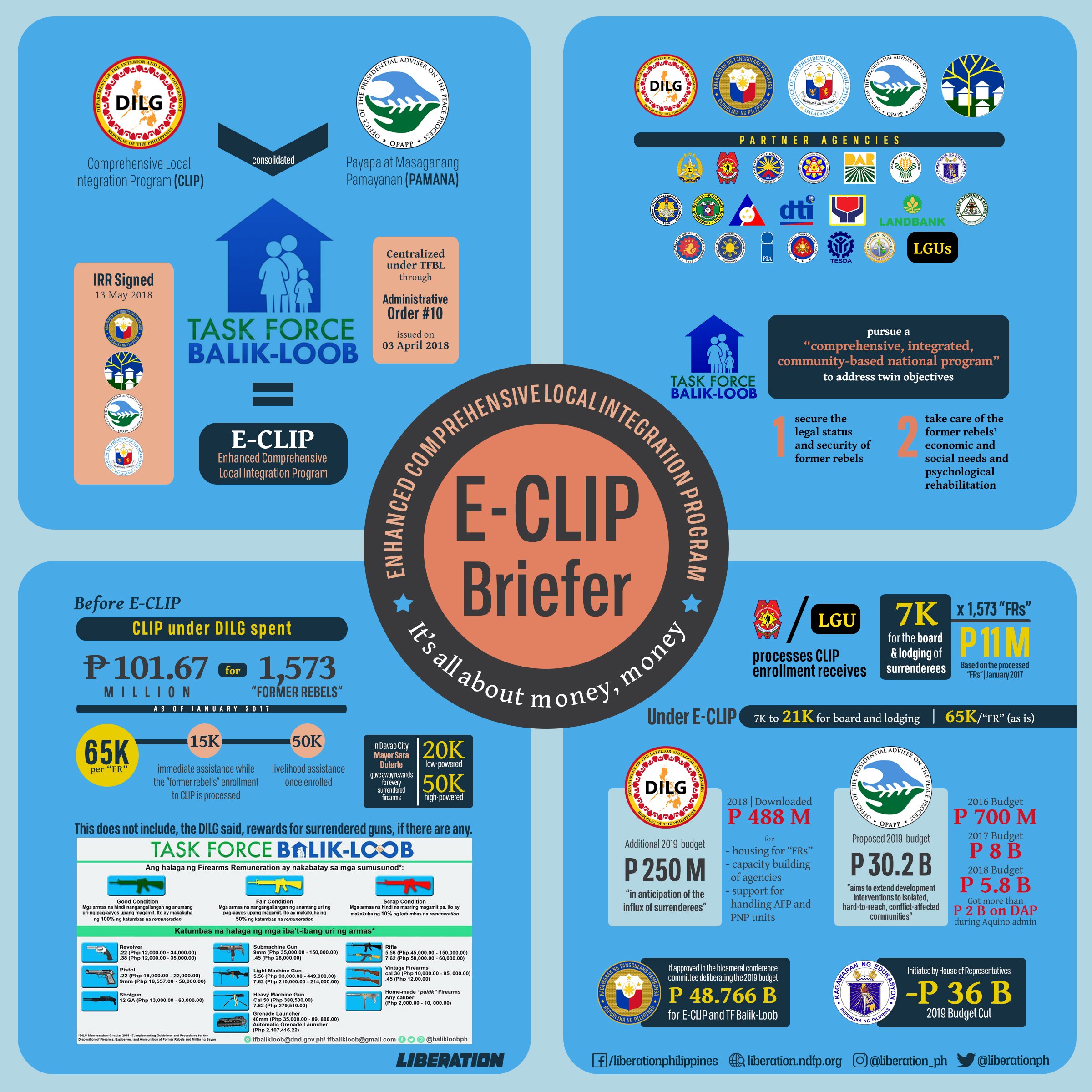
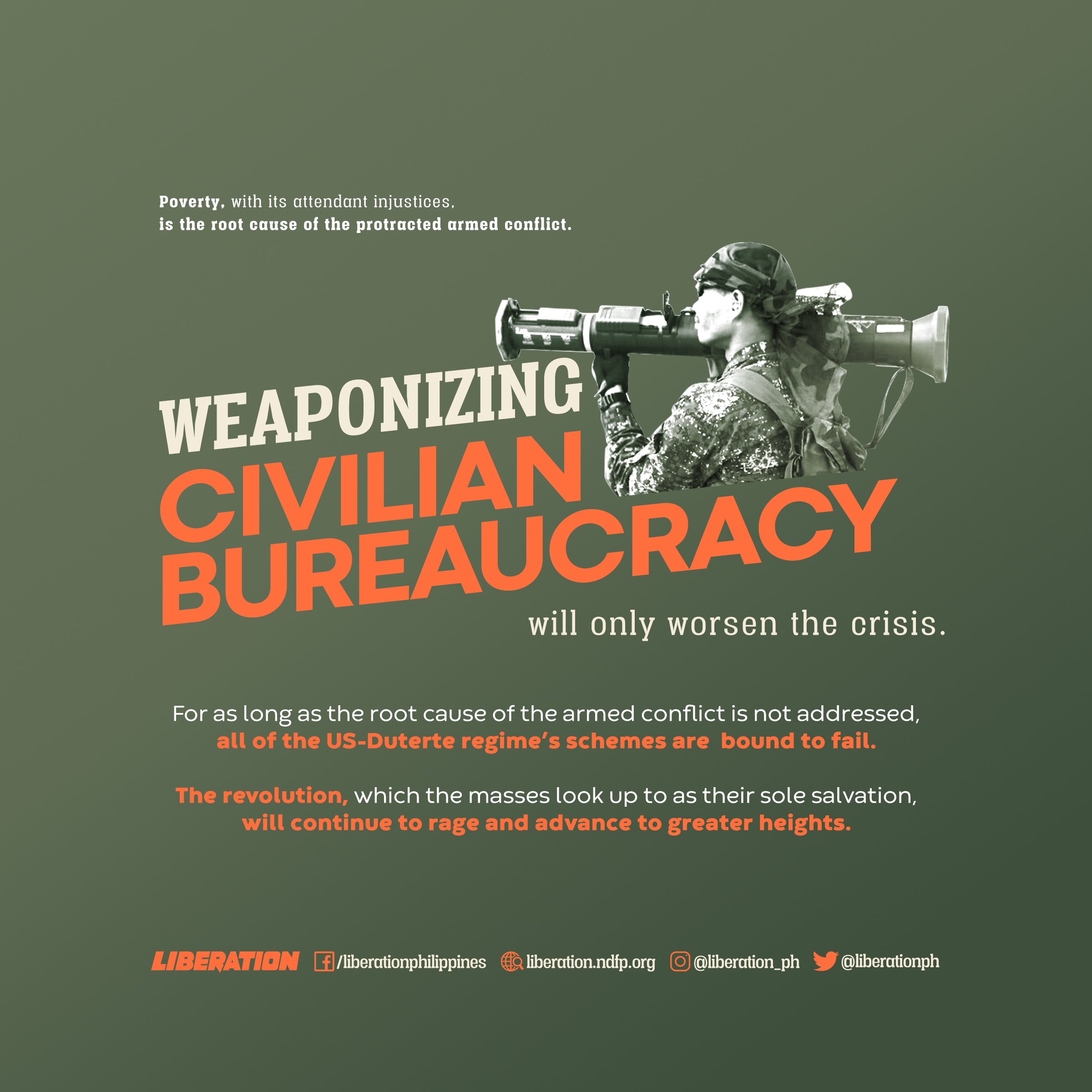
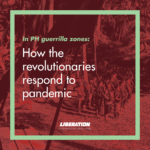
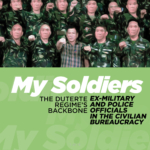

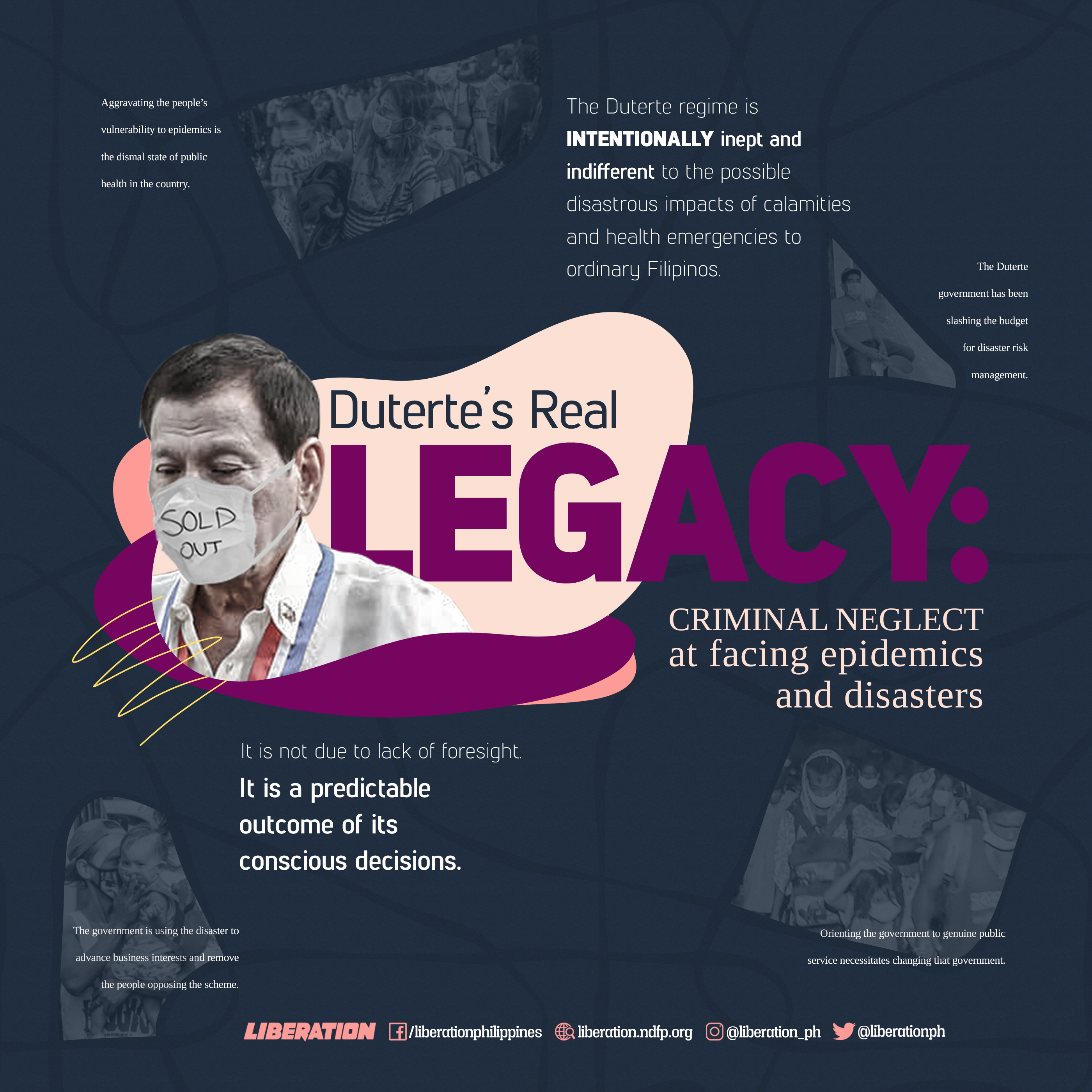
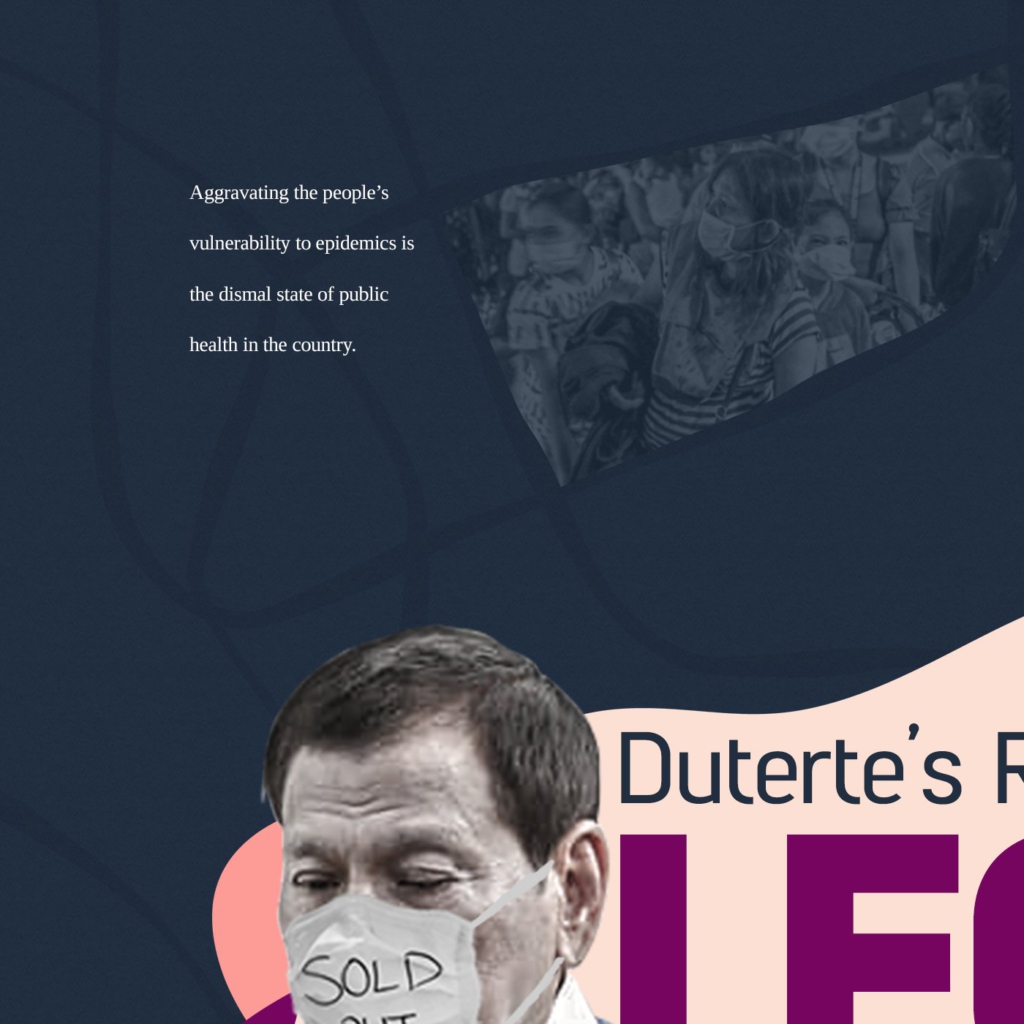 SLASHED BUDGET, WEAK HEALTH CARE SYSTEM FOR THE POOR
SLASHED BUDGET, WEAK HEALTH CARE SYSTEM FOR THE POOR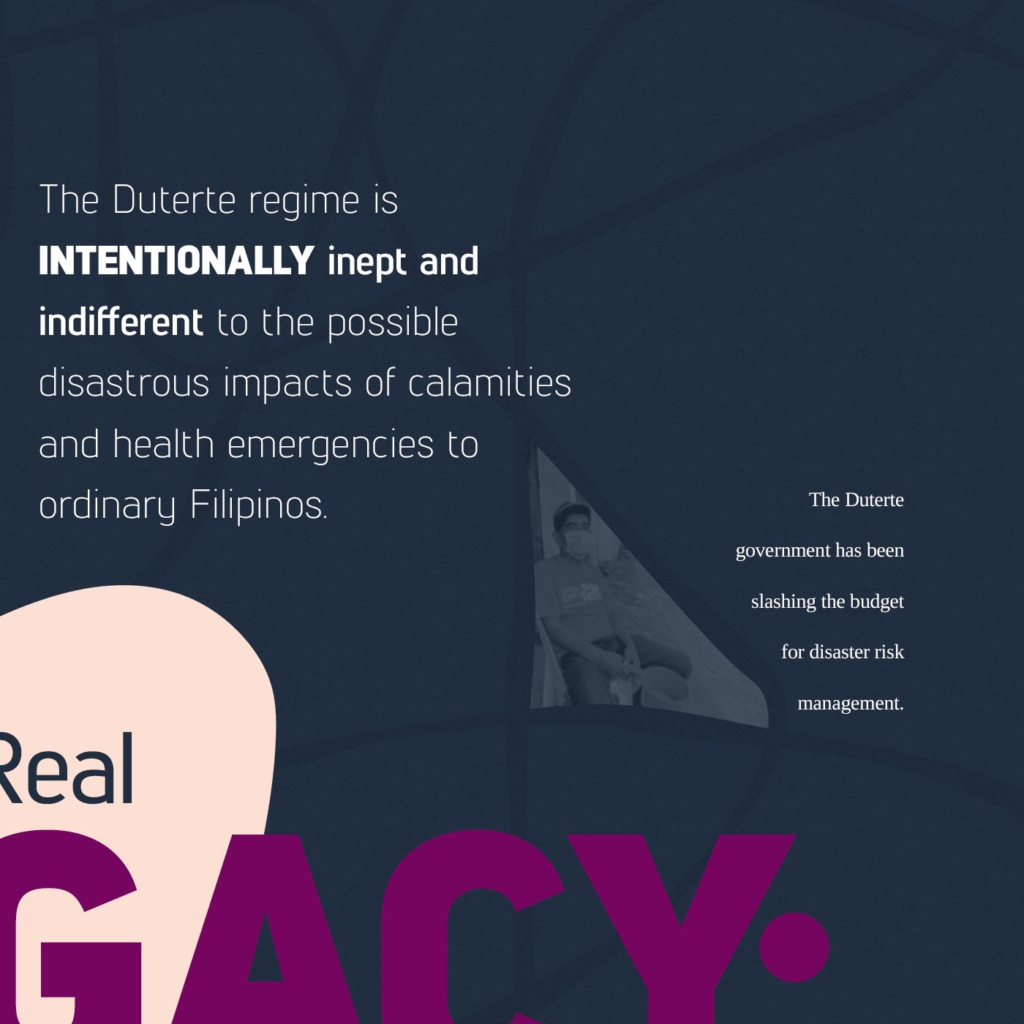 SLASHED BUDGET, ILL-PREPARED FOR DISASTERS
SLASHED BUDGET, ILL-PREPARED FOR DISASTERS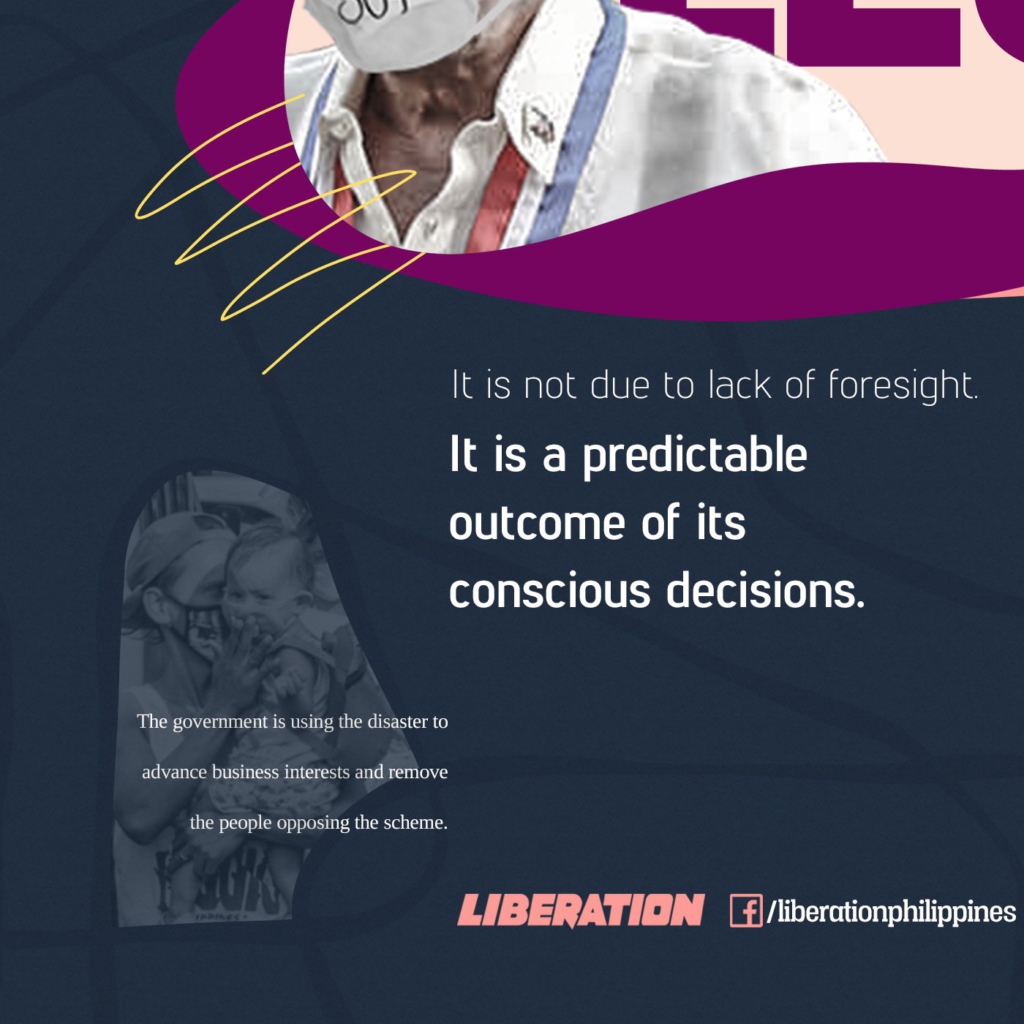 BUT THERE’S MONEY IN DISASTERS
BUT THERE’S MONEY IN DISASTERS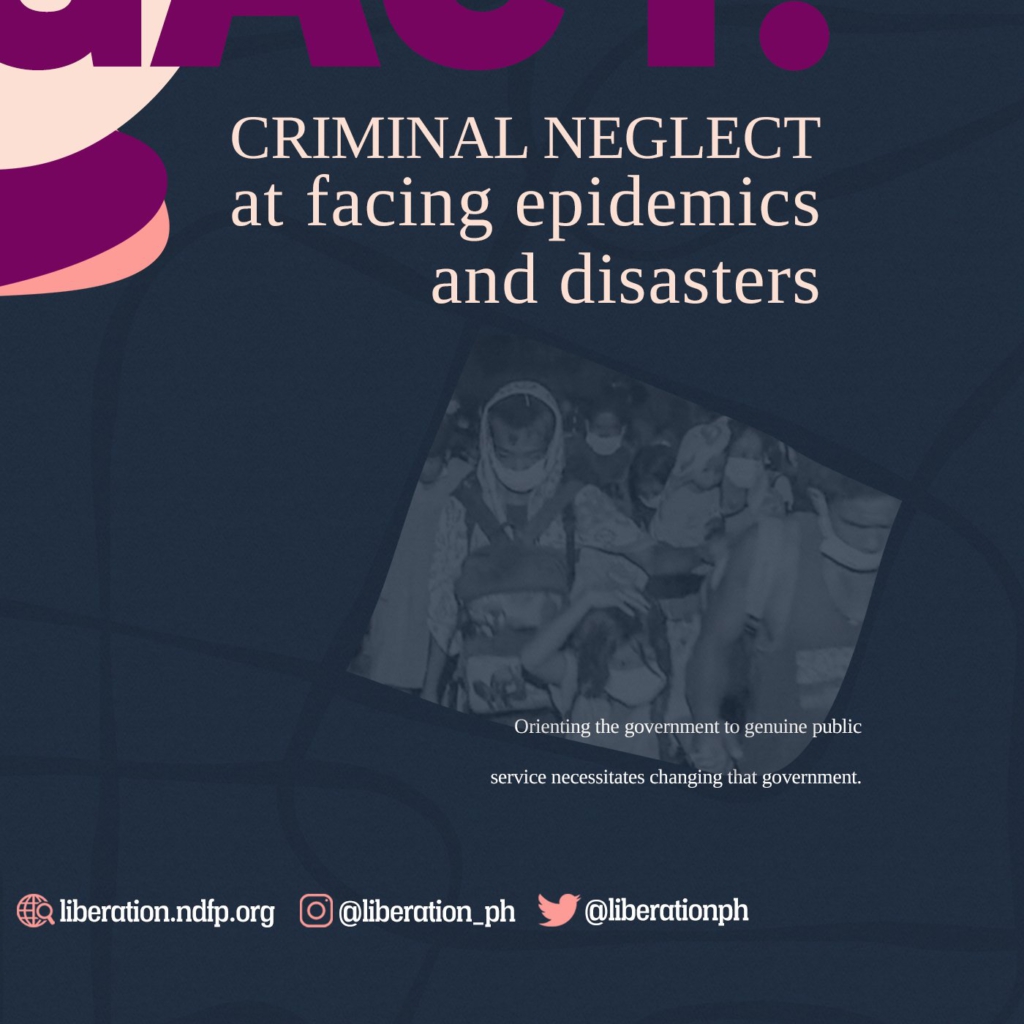 OUSTING DUTERTE A PATRIOTIC DUTY, BUILDING THE PEOPLE’S DEMOCRATIC GOVERNMENT A NECESSITY
OUSTING DUTERTE A PATRIOTIC DUTY, BUILDING THE PEOPLE’S DEMOCRATIC GOVERNMENT A NECESSITY